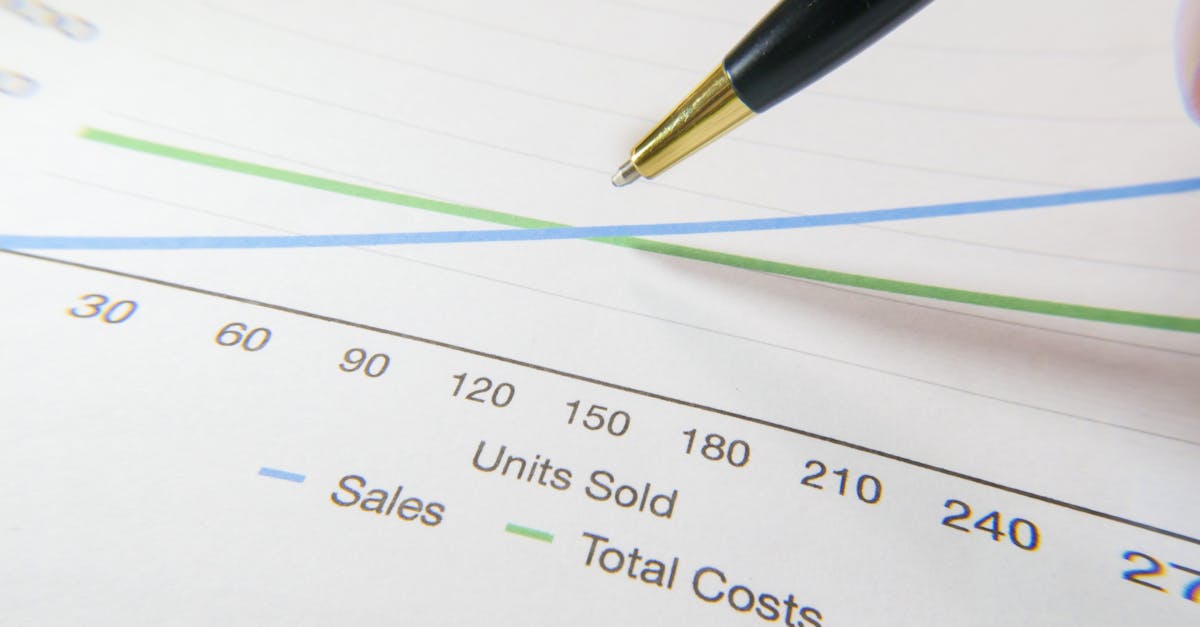Key Takeaways
- Automating marketing events simplifies planning, execution, and follow-up, saving time and reducing human error.
- Automation tools handle repetitive tasks like registration tracking, email scheduling, and attendee management seamlessly.
- Scalability is a key benefit as automation adapts to both small webinars and large conferences without compromising quality or precision.
- Real-time collaboration platforms centralize task management, enabling teams to stay aligned and efficient throughout the event process.
- Post-event automation enhances engagement through personalized follow-ups while providing actionable insights via analytics tools.
- Choosing the right automation platform with features like CRM integration, customizability, and robust reporting ensures optimal productivity for event success.
Planning, executing, and following up on marketing events can feel like a juggling act. With 68% of marketers reporting that event marketing drives qualified leads, it’s clear these efforts are worth the investment—but they’re also time-consuming and prone to human error. That’s where automation steps in to revolutionize how we approach every stage of the process.
By automating repetitive tasks, we free up time for creativity and strategy while ensuring nothing slips through the cracks. From streamlining registrations to tracking post-event engagement, automation empowers us to deliver seamless experiences that drive results. Let’s explore how embracing automated tools can transform our marketing events into efficient, data-driven successes.
Understanding Automated Marketing Event Management
Automating marketing event management simplifies complex processes, making planning, execution, and follow-up faster and error-free. It empowers teams to shift their focus from repetitive tasks to meaningful strategies.
What Is Automation in Marketing Events?
Automation in marketing events refers to using technology to streamline every stage of the event lifecycle. From scheduling invitations to tracking post-event analytics, automation reduces manual labor and increases precision. Tools like email automation platforms or CRM integrations handle registrations, reminders, and attendee feedback seamlessly.
Consider a scenario where you're managing an online webinar with hundreds of attendees. Automation tools can send personalized invites, confirm participation instantly, and even distribute post-event surveys without human intervention. These systems integrate data across platforms so that every point of interaction is tracked efficiently.
Unlike manual methods prone to oversight or duplication errors, automated solutions guarantee consistency. They centralize key functions like attendee management and real-time reporting into a single interface for better coordination.
Benefits of Automating Event Processes
Automating event processes saves time while boosting overall effectiveness. By removing repetitive tasks such as registration tracking or reminder emails, teams can concentrate on more strategic initiatives like crafting engaging content.
One significant advantage is scalability—automation handles small workshops or large conferences with equal ease. For instance, automated workflows allow marketers to manage multiple events simultaneously without missing deadlines or compromising quality.
Another benefit lies in accurate data gathering during events. Whether it's capturing leads via digital forms or analyzing session attendance rates through integrated dashboards, these insights drive informed decision-making for future campaigns.
Planning Marketing Events with Automation Tools
Automating marketing event planning simplifies processes, strengthens attendee engagement, and improves efficiency. From registration to post-event surveys, automation tools streamline every step.
Key Features of Event Planning Software
Modern event planning software replaces tedious manual tasks with efficient automated solutions. Registration systems offer customizable forms that collect attendee details promptly. Automated ticketing eliminates paper tickets by sending digital passes instantly after signup.
AI-driven personalization is another standout feature. These tools analyze attendee preferences to suggest sessions or networking opportunities tailored to their interests. Real-time attendance tracking provides instant updates on participation metrics during the event.
Post-event feedback collection becomes seamless with built-in survey distribution features. Instead of manually following up, organizers rely on pre-configured email triggers to gather insights efficiently.
How Automation Saves Time and Resources
Event automation reduces time spent on repetitive tasks like scheduling emails or managing guest lists. For instance, automated email campaigns send reminders and session updates without requiring manual intervention.
Resource allocation also improves through streamlined workflows. By automating data tracking, teams gain immediate access to reports such as attendance rates and lead generation numbers without extra effort. This allows us to focus more on creative strategies rather than administrative duties.
Scalability benefits further highlight its value for resource management. Whether hosting a small webinar or a large conference, these tools adapt effortlessly to varying event sizes while maintaining high precision in execution tasks like communication scheduling or analytics reporting.
Streamlining Execution Through Automation
Automating marketing event processes optimizes efficiency and keeps everything running smoothly. From task management to real-time attendee engagement, automation transforms how we handle events.
Real-Time Collaboration and Task Management
Automation tools simplify collaboration by centralizing tasks on a single platform. Teams can assign responsibilities, track progress, and communicate updates instantly. For example, project management software enables seamless coordination between content creators, designers, and event planners without endless email chains.
These platforms also provide automatic reminders for deadlines, ensuring tasks stay on schedule. Imagine assigning follow-up surveys during the post-event phase—automation handles this effortlessly while you focus on analyzing insights. With shared dashboards displaying live updates, everyone stays aligned regardless of their location.
By eliminating manual tracking of assignments or approvals, automation reduces errors and saves time. This streamlined approach fosters better teamwork even in high-pressure situations like last-minute changes to event schedules or materials.
Leveraging Automated Campaigns During the Event
During events, automated campaigns maintain audience interest through scheduled communications. Pre-set workflows trigger emails or SMS messages based on attendee actions like session check-ins or booth visits.
Social media scheduling tools keep posts flowing while you engage with participants face-to-face. If someone tweets about your event using a specific hashtag, an automated reply could thank them instantly or share additional resources related to their interest.
Event apps integrated with CRM systems enhance personalization by delivering tailored notifications directly to attendees' devices—think agendas updated in real-time or exclusive offers for VIP guests. These timely interactions boost engagement without requiring constant manual intervention from your team.
Effective Follow-Up with Automated Solutions
Automating follow-ups after marketing events strengthens engagement and streamlines communication. It saves time and increases attendee interaction, making post-event processes more efficient.
Tools for Post-Event Tracking and Analytics
Using automated tools simplifies tracking attendance, gathering feedback, and analyzing event performance. Platforms like HubSpot help monitor key metrics such as attendee conversion rates. They automate email outreach based on attendee actions and integrate seamlessly with other software for consolidated data insights.
ActiveCampaign enhances follow-up strategies by enabling personalized email campaigns tied to specific participant behaviors. For instance, it can send thank-you emails to attendees or promotional offers to non-attendees automatically. Integrating these tools into your workflow eliminates manual data entry errors while offering accurate analytics to evaluate event success.
Combining automation with field-specific enhancements boosts efficiency across industries. While service-based businesses use Service Industry Software Solutions for task management, marketers rely on CRM integrations during events for better audience targeting in future campaigns.
Enhancing Engagement with Personalized Follow-Ups
Personalized communication keeps the conversation going after an event ends. Automated systems like ActiveCampaign send tailored content such as exclusive discounts or session highlights based on individual interests shown during registration or participation.
SMS notifications maintain immediacy in communication, especially when addressing queries from attendees who prefer quick updates over lengthy emails. These solutions build trust by delivering relevant information promptly without overwhelming the recipient.
Incorporating Mobile Workforce Management principles ensures that no lead is left unattended post-event—mirroring practices seen in technician scheduling software that optimizes tasks systematically across teams. By keeping interactions meaningful yet concise, we foster stronger connections while maximizing our reach efficiently via automation tools designed specifically for post-event activities.
Choosing the Right Automation Tools
Selecting effective automation tools is vital for streamlining marketing event management. The right tools simplify planning, execution, and follow-up while boosting productivity.
Important Features to Consider
Identifying key features in automation tools helps maximize their impact. A user-friendly interface is crucial. Both organizers and attendees benefit from simple navigation that reduces confusion and saves time during setup or participation.
Integration capabilities are equally important. Tools should connect seamlessly with CRMs, email platforms, social media channels, or analytics software to create a unified workflow. For example, linking an event registration platform with a CRM ensures attendee data syncs automatically for future follow-ups.
Customizability enhances efficiency by allowing teams to adapt features like registration forms or communication templates to match specific event needs. Automated reminders sent via email or SMS also improve attendance rates by keeping participants informed without manual effort.
Analytics and reporting functions provide actionable insights post-event. These include attendance tracking and lead generation reports that inform future strategies. Some advanced options even offer AI-driven personalization for tailored attendee experiences based on preferences or behaviors.
Comparing Popular Platforms
Several platforms cater to automated marketing events with distinct capabilities. Eventbrite offers intuitive ticketing systems integrated with promotional tools suited for small-to-medium-sized events. HubSpot provides comprehensive solutions combining CRM integration with personalized outreach campaigns ideal for scaling efforts efficiently.
Bizzabo focuses on hybrid events by blending in-person and virtual elements through centralized dashboards accessible in real-time—perfect for teams managing complex formats simultaneously. Meanwhile, Cvent specializes in corporate functions by offering advanced analytics paired with robust networking options via mobile apps tailored for professional audiences.
Conclusion
Automating the planning, execution, and follow-up of marketing events revolutionizes how we approach event management. It frees up valuable time, minimizes errors, and empowers us to focus on creating memorable experiences that drive meaningful results.
By leveraging the right tools with robust features like CRM integration, real-time tracking, and AI-driven personalization, we can enhance efficiency while tailoring every aspect of our events to meet audience needs. Automation isn't just a convenience; it's an essential step toward scalable success in today's competitive marketing landscape.
As we embrace automation's potential, we're not only simplifying processes but also unlocking opportunities to deliver impactful events that resonate long after they've ended.
Frequently Asked Questions
What is marketing event automation?
Marketing event automation uses technology to streamline tasks involved in planning, executing, and analyzing events. It automates repetitive processes like registration, email reminders, attendee tracking, and post-event surveys to save time and reduce errors.
Why is automation important for marketing events?
Automation simplifies complex workflows, reduces manual errors, saves time, and enhances efficiency. It allows marketers to focus on strategic initiatives while ensuring smoother operations from start to finish.
How does automation improve attendee engagement?
Automation tools enable personalized communication using AI-driven features like tailored invitations or follow-ups. Real-time updates and customized experiences also keep attendees engaged throughout the event lifecycle.
What are the benefits of automating repetitive tasks in event management?
Automating repetitive tasks like guest list management or scheduling emails improves resource allocation, reduces human error, saves time, and boosts productivity while maintaining precision at scale.
Which tools are best for marketing event automation?
Popular tools include Eventbrite for ticketing solutions, HubSpot for CRM integration capabilities, Bizzabo for hybrid events management, and Cvent for corporate functions. Each tool offers unique features suited to specific needs.
Can automated tools handle both small-scale and large-scale events?
Yes! Automation tools offer scalability that adapts seamlessly to different event sizes. They maintain efficiency regardless of the complexity or number of attendees involved.
How do automated platforms assist with post-event analysis?
They provide detailed analytics reports on attendance metrics, lead generation success rates, survey results, and other key insights that help inform future campaigns effectively.
Are automated platforms easy to integrate with existing systems like CRMs?
Most modern platforms come with integration capabilities designed specifically for CRMs or other software systems. This ensures a unified workflow across all aspects of event management.
What should I look for when choosing an event automation tool?
Choose a platform with a user-friendly interface, strong CRM integrations, customizable options tailored to your needs, AI-driven personalization features, and robust reporting functionalities.
Does using automation save costs in the long run?
Yes! By reducing manual labor hours spent on tedious tasks and minimizing errors that could result in costly fixes later on—automation ultimately cuts expenses over time while boosting ROI.






